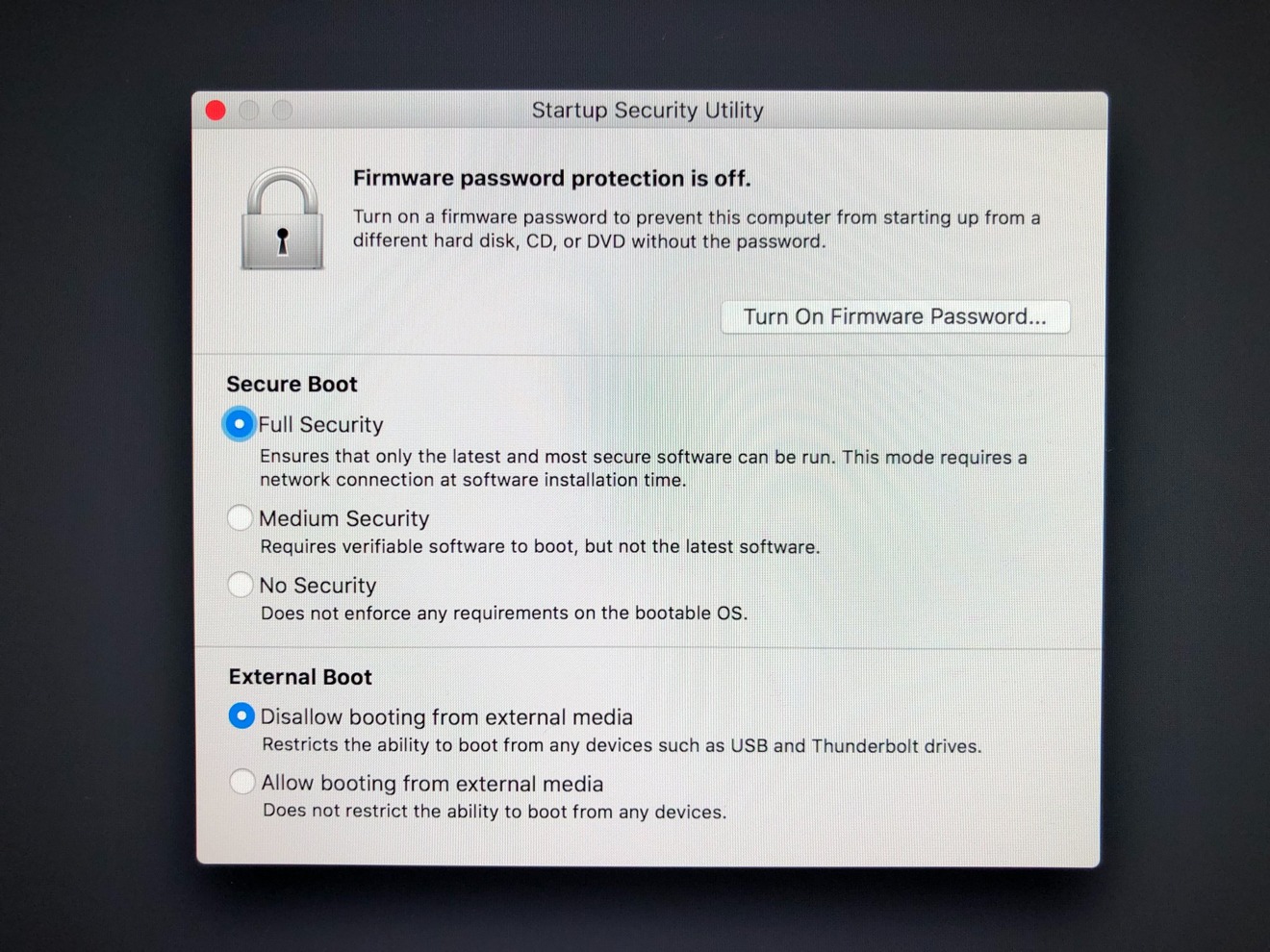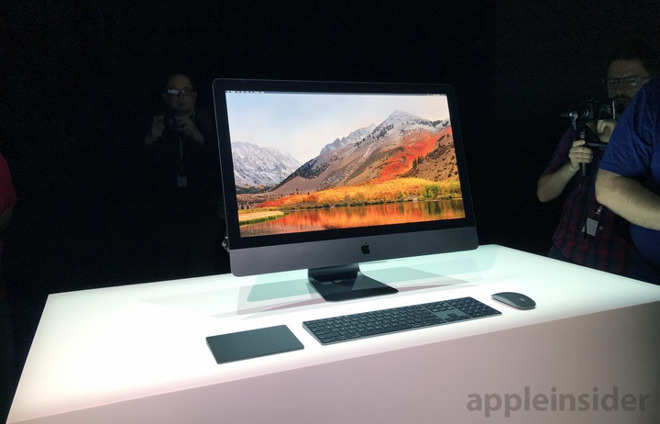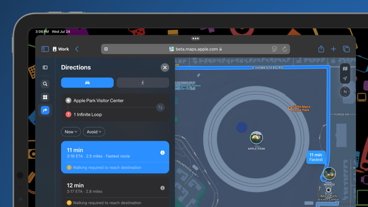iMac Pro debuts custom Apple T2 chip to handle secure boot, password encryption, more
Last updated
Apple's iMac Pro desktop will also sport an a new custom chip dubbed the T2, serving as a secure enclave for encrypted keys, giving users the ability to lock down their Mac's boot process and also handling system functions like the camera, audio control, and managing the solid-state hard drive.
Details on the T2 chip were revealed on Tuesday by Cabel Sasser, cofounder of developer Panic. According to him, the T2 chip combines previously discrete functions, including the system management controller, image signal processor for FaceTime camera, audio control, and SSD control.
In addition, like Apple's A-series chips for iPhone and iPad, as well as the MacBook Pro's T1 before it, the T2 has a secure enclave for storing information like passwords. It also has a hardware encryption engine, according to Sasser.
"This new chip means storage encryption keys pass from the secure enclave to the hardware encryption engine in-chip — your key never leaves the chip," he wrote on Twitter. "And, they it allows for hardware verification of OS, kernel, boot loader, firmware, etc. (This can be disabled)"
To take advantage of the T2 chip, the iMac Pro's version of macOS High Sierra includes a new "Startup Security Utility" option. Here, users can turn on a firmware password to prevent a computer from starting up from a different hard disk, CD or DVD without the password.
macOS also gains new "Secure Boot" options, ranging from "Full Security" to "Medium Security" or none. When "Full Security" is enabled, the system ensures only the latest and most secure software can be run, requiring a network connection at software installation time.
Users can also allow or disallow booting from external media with the new T2 chip.
Apple's first T1 chip launched in late 2016 in the MacBook Pro. There, it is responsible for Touch ID authentication, as well as the secure enclave for storing Apple Pay credentials.
The details on the iMac Pro T2 chip would seem to dispel earlier rumors that claimed Apple would build a full-fledged A10 chip into the iMac Pro. The A10 powers Apple's iPhone 7 and iPhone 7 Plus, while a beefed up A10X processor is found in the 2017 iPad Pro lineup.
Notably, the iMac Pro lacks Touch ID, or Face ID, meaning there is no way to authenticate Apple Pay purchases with the device. Users must instead rely on an iPhone or Apple Watch nearby, logged into the same iCloud credentials, to authorize Apple Pay purchases on the web.
Other reports suggested that the addition of custom Apple silicon in the iMac Pro could enable always-on "Hey Siri" support. Sasser's notes on Twitter gave no mention of "Hey Siri" support, but given the T2's integration with other key components in the iMac Pro, it's possible that the feature could be coming in a future update to macOS.
 Neil Hughes
Neil Hughes















 Amber Neely
Amber Neely
 Thomas Sibilly
Thomas Sibilly
 AppleInsider Staff
AppleInsider Staff
 William Gallagher
William Gallagher
 Malcolm Owen
Malcolm Owen
 Christine McKee
Christine McKee









27 Comments
A10 or T2. Either way it doesn’t look good for the hackintosh crowd going forward.
It's also possible the T2 is based off the A10. The T1 was based off the first Watch SoC.